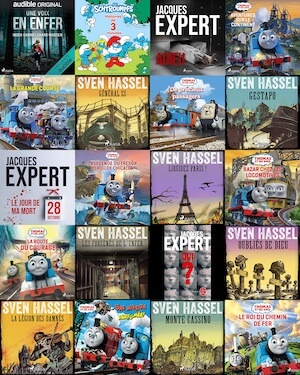 In both voice over and narration, you obviously work with your voice, and if you work well, you're not reading aloud to a microphone, you're telling a story to an audience. But the similarity ends there. Narrating an audiobook is, for me, a different job from being a French voice actor. In advertising, corporate, etc. we work under time constraints most of the time. When there are no time constraints, as is often the case in e-leaning for example, a specific, professional and friendly tone is required.
In both voice over and narration, you obviously work with your voice, and if you work well, you're not reading aloud to a microphone, you're telling a story to an audience. But the similarity ends there. Narrating an audiobook is, for me, a different job from being a French voice actor. In advertising, corporate, etc. we work under time constraints most of the time. When there are no time constraints, as is often the case in e-leaning for example, a specific, professional and friendly tone is required.
In audiobook narration, however, there are no time constraints or tone restrictions. One must be attuned to the mood of the story and its characters. This means we're free to take as much time as we need to tell the story, like a village storyteller would, living the story in front of – and with – their listeners.
This is also the goal in documentary narration. Time constraints are present, of course, but the narrator must immerse the viewers in the story they're telling. The audioguides must also transport the listeners into the universe they're talking about.
So yes, in commercial and corporate voice over work, we also need to connect with our audience, but in narration, we have a luxury of freedom. If, of course, we enjoy telling stories!
 In both voice over and narration, you obviously work with your voice, and if you work well, you're not reading aloud to a microphone, you're telling a story to an audience. But the similarity ends there. Narrating an audiobook is, for me, a different job from being a
In both voice over and narration, you obviously work with your voice, and if you work well, you're not reading aloud to a microphone, you're telling a story to an audience. But the similarity ends there. Narrating an audiobook is, for me, a different job from being a 